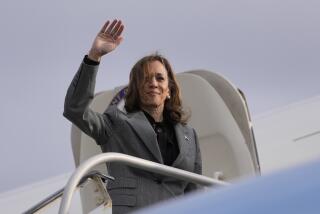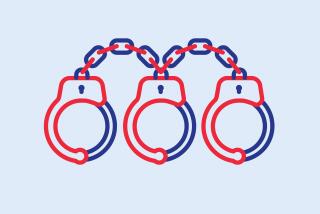Blow Away All the Smoke : Were signers misled on Philip Morris-backed petition?
There’s no doubt that a lot of voters who signed petitions to qualify a smoking initiative for the November ballot in California thought they were supporting a tough anti-smoking plan. In fact, the measure’s aim is to weaken existing local restrictions on smoking in public places. The reasonable question is whether the signers were deliberately misled.
Acting Secretary of State Tony Miller is one of those who believes they were. He wants permission from a Sacramento court to ask 400 or more randomly chosen signers what they were told by signature gatherers. Miller says documents indicate the petition circulators were told not to reveal that the initiative would wipe out strong local anti-smoking laws. Nor was the sponsor of the initiative to be identified as Philip Morris, the nation’s largest tobacco company, which has spent just under $500,000 to qualify it. Had that been known, many might have had second thoughts about signing the petitions.
Philip Morris denies any wrongdoing, and there apparently is no precedent of a court allowing the kind of questioning of petition signers that Miller has requested. Certainly, too, this is not the first initiative to be signed by voters who were unclear or in the dark about what they were lending their names to.
Noting all that, health-conscious Californians are still left with the dismaying prospect of finding a regressive and deceptive so-called anti-smoking initiative on their November ballot. That measure would wipe out many of the gains made at the local level to ban smoking in public places, allowing instead a statewide easing of rules on smoking in restaurants that--no surprise--would benefit the initiative’s sponsor. What the court will do with Miller’s request is uncertain. What the voters should do if this duplicitous initiative reaches the ballot is as clear as can be.
More to Read
Get the L.A. Times Politics newsletter
Deeply reported insights into legislation, politics and policy from Sacramento, Washington and beyond. In your inbox three times per week.
You may occasionally receive promotional content from the Los Angeles Times.










